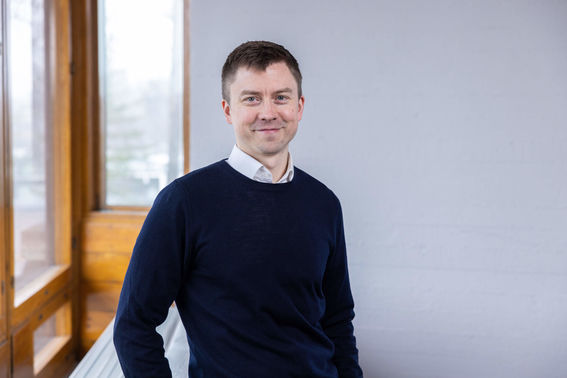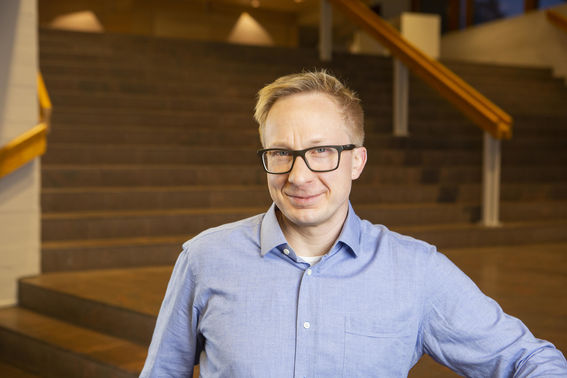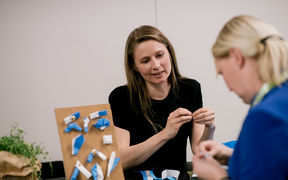How to harness artificial intelligence for business? Researchers join forces with eight international companies

Generative AI was introduced to the working population less than a year ago with the launch of ChatGPT. From the start, it has been clear that many tasks and processes could be radically changed with its help – made easier, more efficient, even eliminated altogether. In what way exactly, though, is still anyone’s guess.
A new Aalto University research project, ‘Smarter Work with Generative AI’, addresses this question, bringing together researchers of industrial engineering and management as well as companies to support the latter in utilizing generative AI.
‘Even the creators of this technology don't yet know what the best way to use generative AI is. This moment is a bit like the early days of the internet, when few people could imagine what it was all about,’ says co-director of the project, Associate Professor Jukka Luoma.
The research project, funded by Business Finland, involves eight international companies, such as Accenture, Etteplan, Fiskars Group, M-Files, Metso, UPM and Saidot. For the success of the project, it is crucial that the companies represent wide range of sectors from manufacturing to ICT. All of them have identified generative AI as a transformative force in their own sector. Now, researchers are setting out to support the companies in applying the new technology, identifying common challenges and finding solutions, as well as facilitating knowledge exchange and good practices between the companies. The follow-up study will run for three years.
‘The project will generate information for the wider business community. We are driven by the desire to find out how AI can be harnessed as a positive force in society, both from the perspective of companies and employees,’ says Professor Henri Schildt, co-director of the project.

Unique disruption
There is one particular way in which the generative AI revolution is significantly different from most technological disruptions.
‘Usually when new technologies come along, they are hard to understand; ordinary people have no idea of the applications. With this, everyone can imagine for themselves what they can do with it. It's very unusual historically – I've never come across a technology like this before,’ says Luoma.
The research data accumulated so far shows that generative AI has huge potential to increase both organisational productivity and employee satisfaction.
‘But the benefits are not automatic. Many organisations will need to rethink their practices and business models to make smart use of the potential,’ says Schildt.
‘Organisational research on generative AI is in its infancy because of the novelty of the phenomenon. We are at the forefront of international research,’ he continues.
The research project will pay particular attention to the ethical risks of using AI, from the design phase of AI applications onwards.
‘We also aim to monitor the longer-term impact of technology adoption on organisations,’ says Heli Helanummi-Cole, project manager and postdoctoral researcher.
The research is funded by the participating companies and Business Finland. The project's international partners include the University of Cambridge, Imperial College London and VU Amsterdam.
Corporate collaboration
Research collaboration strengthens expertise and future business development. New product and service ideas are created in study projects. Our campus offers an inspiring operating and networking environment. At Aalto's recruitment events, companies meet the top talents of the future.

Read more news

Learning to slow down: cold-water swimming benefits explored in new study
Swimming in cold water offers a temporal slowdown, promoting stress management and mental clarity that lingers long after the experience, says research from Finland.
Alum Ding Ma: 'I want to represent a new-era Mayor'
Ding Ma, who will start as the Mayor of Savonlinna at the age of 37, studied Information and Service Management at the School of Business.
The proxy server for remote access to e-resources is changing
If you have problems using e-resources, try accessing the e-resource using VPN connection.






